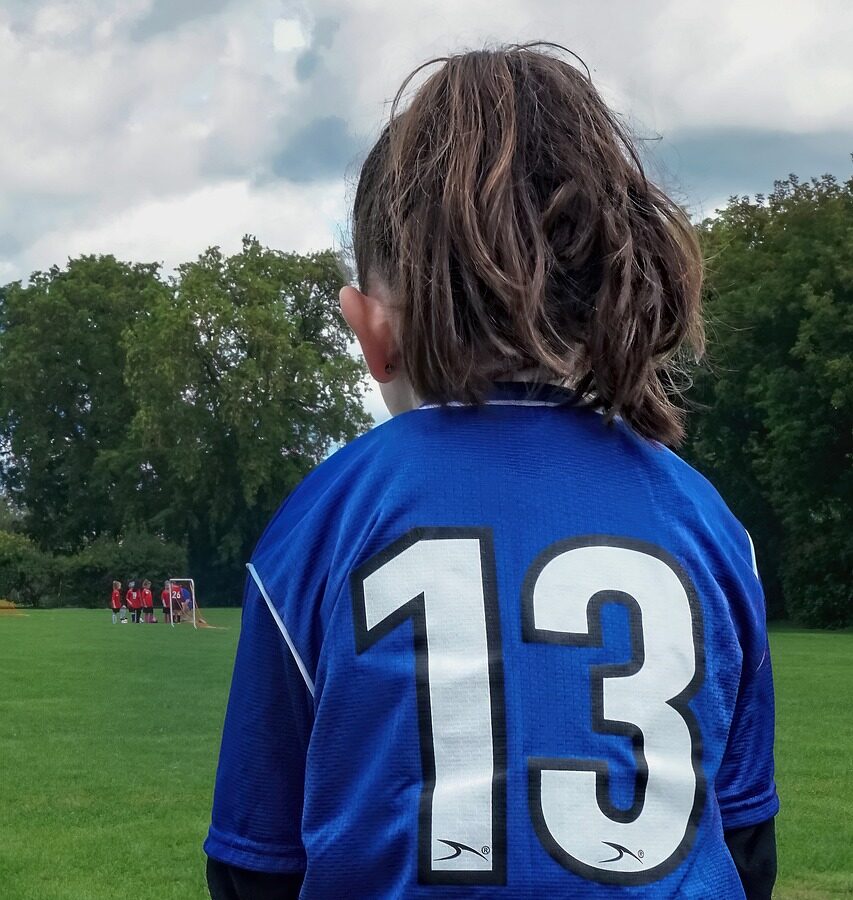In sports—and in life—being coachable is one of the most important qualities an athlete can have. A coachable kid isn’t just the most talented player on the field; they’re the one who’s willing to learn, adapt, and grow. As a parent or coach, you can help develop these essential traits that will not only make your child a better athlete but also a better teammate and person.
As coach Dawn Staley wisely said, “The biggest challenge is to get them to believe in what we’re doing. They have to understand that it’s O.K. to have good days and bad days.” This belief in the process is key to fostering a coachable mindset.
Here are some key qualities of a coachable kid and tips for encouraging them.
1. Listens Well and Takes Feedback
A coachable kid knows how to listen carefully to their coach’s instructions and feedback. Whether it’s learning a new skill or understanding what needs improvement, a coachable player is always open to feedback—without getting defensive or frustrated. Encouraging your child to actively listen and take constructive criticism is vital for their growth.
2. Willing to Play Any Position
Sometimes a player might want to stick to their favorite position, but a coachable kid is willing to play wherever they’re needed. Flexibility is key, and being open to trying different roles shows they’re a team player who puts the team’s needs above their own preferences.
3. Tries New Things
A coachable child embraces new challenges and is excited to try things outside of their comfort zone. Whether it’s learning a new skill, a different position, or a new drill, being open to new experiences makes them more adaptable and versatile as a player.
4. Has a Positive Attitude
No matter how tough the game, a coachable kid maintains a positive attitude. Positivity can be contagious, and it helps lift the morale of the whole team. Teaching your child to stay upbeat, even during losses or difficult practices, shows resilience and character.
5. Is a Fighter
A coachable player never gives up. They fight through tough moments in practice and in games. They may not always succeed on their first attempt, but they keep pushing until they get better. That determination to improve is what sets them apart. As Vince Lombardi said, “The difference between a successful person and others is not a lack of strength, not a lack of knowledge, but rather a lack of will.”
6. Shows Empathy for Teammates
Beyond individual performance, a coachable kid understands the importance of supporting their teammates. Whether it’s cheering them on after a tough play or helping them through challenges, having empathy fosters a sense of community and builds strong bonds within the team.
7. Comes Prepared and Punctual
Being prepared goes beyond just bringing the right gear. A coachable kid shows up ready to work hard, asks questions, and is eager to improve. If they’re late to practice, they don’t stroll in; they run, understanding the value of every minute spent on the field.
8. Has Energy and Enthusiasm
A coachable kid brings energy to every practice and game. Enthusiasm can boost the overall spirit of the team, and it shows a willingness to engage fully in what they’re doing. Encourage your child to play with passion and excitement—it makes a big difference.
9. Asks for Feedback
The most coachable kids are the ones who actively seek feedback. They ask their coaches what they can do better and are genuinely interested in improving their game. Help your child develop this mindset by encouraging them to take ownership of their progress.
10. Likes to Be Challenged
A coachable player thrives when they are pushed beyond their limits. They don’t shy away from difficult tasks or tough training. Instead, they see challenges as opportunities to grow and develop new skills. As Bobby Knight put it, “The will to succeed is important, but what’s more important is the will to prepare.”
How Parents Can Help at Home
As a parent, you play a key role in helping your child develop these coachable traits. Here are some simple ways to reinforce these qualities at home:
- Encourage Active Listening: Practice with your child at home by having them follow instructions in daily tasks.
- Teach Resilience: Help your child understand that failure is part of learning. Encourage persistence after setbacks.
- Promote a Growth Mindset: Emphasize the value of effort and hard work over natural talent.
- Model a Positive Attitude: Show them how to stay positive when facing difficulties, and praise their effort.
- Foster Flexibility: Encourage your child to try different roles or tasks, teaching the importance of versatility.
- Practice Taking Feedback: Provide constructive feedback at home, helping them learn how to handle criticism and use it to improve.
- Teach Empathy: Encourage kindness and support for others, whether at home or in social situations.
- Instill Good Time Management: Encourage punctuality and preparedness by setting routines and expectations.
- Create Challenges: Give your child tasks that push them to grow, and praise their effort rather than the outcome.
By practicing these behaviors at home, parents can help foster coachability in their children, making them more open to learning and growing both in sports and in life.
Final Thoughts
Raising a coachable kid isn’t about pushing them to be the best player on the team—it’s about instilling the qualities that will help them succeed both on and off the field. By fostering traits like a willingness to learn, empathy for teammates, and a positive attitude, you’ll help your child not only become a better player but also a well-rounded individual who can handle life’s challenges.
Encourage your child to be open to new experiences, to fight through adversity, and to always come prepared with energy and enthusiasm. These are the traits that make a coachable kid, and they’re the foundation for success in sports and beyond.
As Sean McDermott said, “What I look for are guys that work hard, have a great work ethic, and embrace that underdog mentality.”
Help your child develop these qualities, and they’ll have the drive and resilience to succeed in whatever they set their minds to.
Sources:
Dawn Staley is the head basketball coach for South Carolina’s Gamecocks women’s basketball team.
Vince Lombardi was an NFL football coach that won five championships.
Bobby Knight was a legendary college men’s basketball coach.
Sean McDermott is an NFL football coach that is currently the head coach for the Buffalo Bills.
All quotes were provided by Joker Mag.




